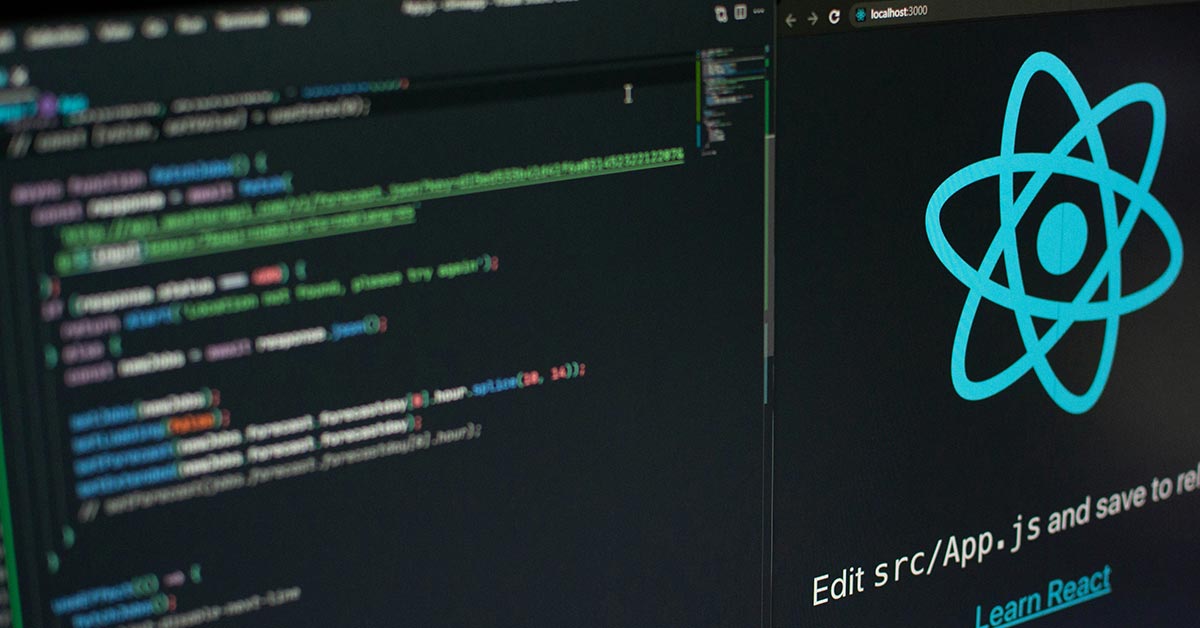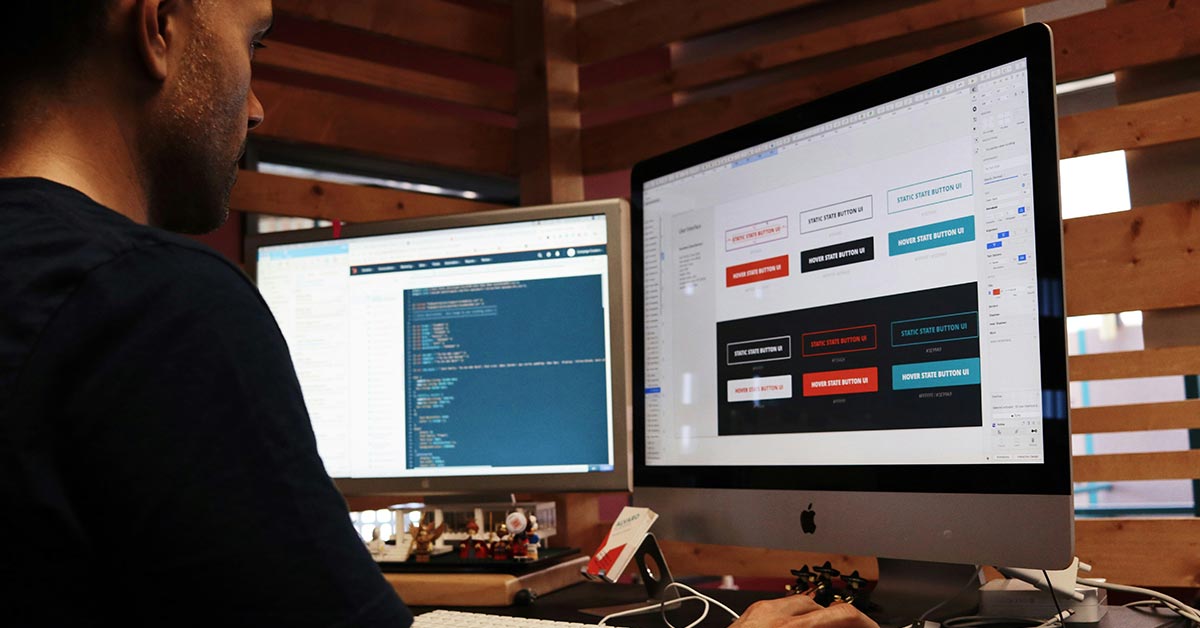Knowing how to manage a software development team effectively as a project manager can distinguish a successful project from a failed attempt. Forbes shared the results of a study that showed how employees become 20% more productive when promoting employee happiness.
Imagine how that could translate to software development. Ensure an engaged, happy, and productive team with our complete guide on managing a software development team to enhance your project or company’s success and growth.
Gain Valuable Insights From Experienced Project Managers
At Pulsion, we’ve worked with software development teams for over two decades, gathering plenty of first-hand experience managing remote teams and an in-house development team. Learn more about us to understand our work culture, management techniques, and the team capable of helping you.
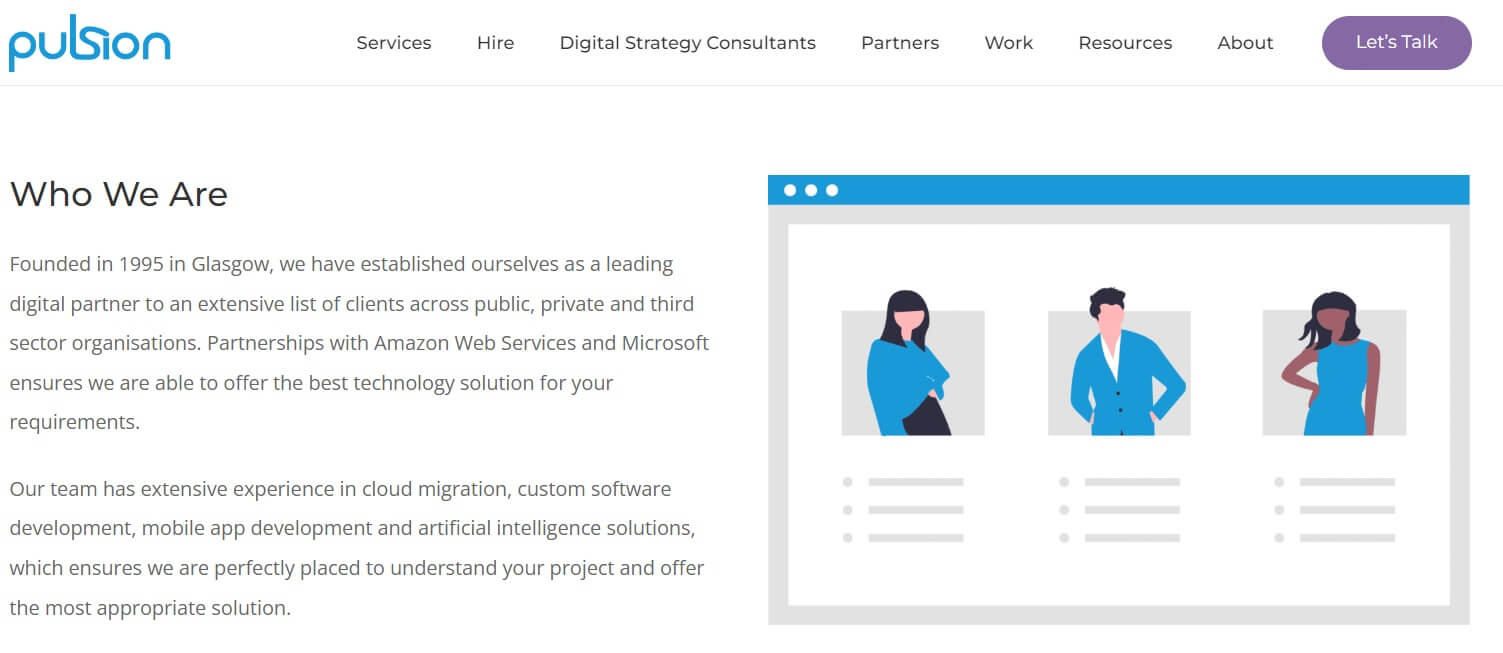
We strongly believe in a culture of hard work with open communication when working at Pulsion.
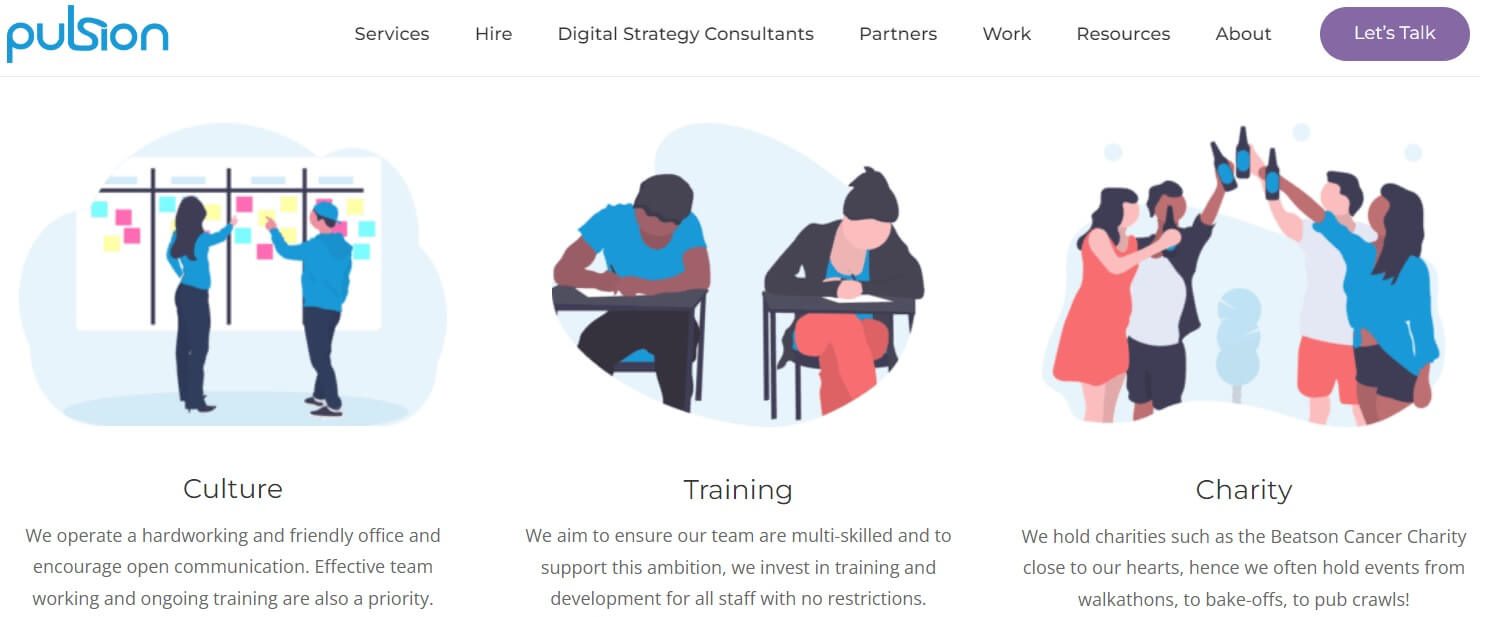
Our team leadership has seen many clients happy with their project results. Meanwhile, you can hire dedicated developers from our teams, which come with a project manager, whether you need dedicated ReactJS developers, WordPress developers, or PHP developers.

Effective communication and collaboration in team management are priorities for our project managers. Speak to one of our digital strategy consultants or contact us today to discuss your needs.
The Advantage of Effective Management for Software Teams
The advantage of effectively managing a software development team includes efficient collaboration and effective communication. However, further benefits arise from efficient project management:
- A culture of collaboration and understanding among team members
- Enhanced transparency for clients and stakeholders
- Increased productivity among team members and in business processes
- Efficient methodology, whether using an Agile approach or DevOps
- Save time when everyone knows their tasks and responsibilities
- Save money with practical goals to ensure the software team focuses on important tasks
- Increased quality in the final product with a team collaborating smoothly
How to Manage a Software Development Team Effectively Tips
Project managers who manage conflicting tasks, juggle huge development teams, and keep a software project on track are effectively managing a software team. However, there are more ways you can efficiently manage a software team to ensure everyone’s on the same page.
Set an Established Structure for Communication and Feedback in the Development Process
Collaboration tools simplify communication and feedback. It’s the first step you take toward managing a software team like the professionals. Set clear and open communication from the get-go.
Team meetings are essential, whether you work with a remote software development team or an in-house development team. Have regular team meetings without disrupting the developer’s flow or focus.
Leading software teams requires you to hold team meetings frequently enough to keep members engaged without interrupting the focused attention on development.
One-on-one meetings and team meetings to communicate once weekly or bi-weekly are good. Welcome feedback during these meetings to identify specific problems, errors, and setbacks.
Meanwhile, use collaboration tools and communication platforms to successfully manage teams without micro-management. Good team collaboration tools to communicate and collaborate include:
- Asana
- Basecamp
- Email threads
- Google Workspace
- Jira
- Monday
- Slack
- Trello
- Zoom
The idea is to ensure leaders and talent contribute to the discussion, have accountability, make informed decisions together, and work toward the same page. The ideal tool also lets you track time for remote teams working in various time zones.
Many collaboration tools like Slack show different time zones and help teams collaborate with overlapping time-zone hours. For example, you can see when a developer will respond if they’re in different time zones. Ultimately, set up communication and feedback frequencies with the tools.
Set Clear Goals and Expectations for the Team Members
Managing software development teams throughout the software development process means you must clearly define goals and expectations. Encourage and motivate employees with clear company goals.
Investing in hard work hours among software teams also requires creating milestones, deadlines, and clear goals and direction. Developers must know what to expect from your goals.
Challenge a group of specialists to present their best work, innovation, and first-time product based on client or customer objectives and expectations.
Set out the goals for a completed project, preferred coding languages, industry best practices, and resource availability while defining milestones and deadlines for teams to succeed.
Mapping expectations and customer goals for a development team from the start can prevent scope creep and place all expected deliverables in one place. Meanwhile, Gantt charts can define milestones.
Streamline communication remains one of the key components of managing hybrid teams, remote work, key stakeholders, and the right talent in any development process.
Use the Best Project Management Methodologies in Project Management
Adopt the best project management approach for a development team. Team members can follow specific development processes in the development life cycle with commonly used methods.
For example, Agile teams use Agile methodologies, where team members follow shorter, easily digestible development tasks and mileposts for the entire project. Agile project management is popular for a team’s efficiency and to work toward a project’s success.
On the other hand, the Waterfall project management method is a linear approach where tasks typically cascade downward toward deadlines. The chosen approach could determine the key process environment, developer space, article development schedule, and future strategy.
Popular project management strategies for software engineers include:
- Agile
- DevOps
- Kanban
- Scrum
- Scrumban
- Waterfall
Use Project Management Software Tools
An efficient project manager uses project management software or tools to generate employee tasks, set deadlines, send critical output reports, outline feature leads, research, and gather requirements for the ultimate team and technology balance.
Our project management software Requiment focuses more on requirements analysis. However, requirements analysis techniques like scrum outline precision planning for project managers.
Use Requiment to manage projects, conduct requirement analysis, and manage teams and tasks with our software development tool. The benefits include improved software and requirements management.
Sign up for a free trial or book a demo to see our project management software and tool in action. Also, our demo videos show how to use our management tools.

Assign Tasks to Team Members With the Right Skills and Tools
Consider the expertise and skills of each team member before assigning roles or tasks with our project management tool Requiment. Task generation is a feature-driven development on Requiment.
Still, only assign tasks and requests according to the technical skills of your team members. Technical talent and technical experience don’t mean technical teams have every skill under the sun.
Assign tasks relevant to team members skills to ensure everyone feels valued and has a deeper understanding of their roles and expectations for peak performance from developers.
Upper management must consider the skill level of each person on the developer teams for deeper insights into performance-enhancing tasks assignments and management.
Also, understand your own role as a project manager, which means you should handle nontechnical tasks, non-development work, status reports, meetings, resources, and concerns.
Every team member has a crucial role with critical information, some covering technical tasks while others handle nontechnical tasks. Prepare relevant tasks and roles for all team members to start and implement teamwork, involvement, and experience-related control.
Answer questions about a team’s relevant expertise to gain valuable insights as a manager. It enables you to overcome challenges before they arise by assigning tasks for the correct programming languages from the beginning, ensuring writing code for systems involve experience.
Track Project Progress on a Project Management Platform
Track progress with project management software tools. It’s your job to see everyone meets the due dates outlined in your charts or on the project management collaboration tools.
Track and maintain the time spent on each project leg to achieve project completion for companies. The due date is the big picture, but you need to focus on whether teams are meeting milestones.
Lead a team successfully by using software to track projects, challenges, and tasks toward the finished product. Share files in a single location using one software tool to help team members meet deadlines.
Leading software teams isn’t a job for the faint-hearted. The big difference between at-risk teams, the worst-case scenario, and success is to create guiding principles and lead with expectations.
Measure Performance for Continuous Improvement
Software developers and managers need to know the progress of projects to determine where improvements are necessary. Teamwork metrics are the gateway to improving expertise and ability.
It’s another job of managers to create improvement opportunities by measuring performance and focus on deep work that requires urgent attention when developing a software application.
It makes sense to provide feedback for developers, especially constructive feedback, removing obstacles, reminding teams of open communication, scheduling conflicts, and continuous improvements for the whole team.
A team starts gaining team morale with the right tools, which includes performance improvement strategies. Individual team members also thrive with this crucial aspect of management.
Develop a Good Work Culture in Your Project Management System
Work culture is everything in a software team. Let the team focus on technical task assignments while you handle the administrative tasks. Let developers code extreme programming while you track and monitor teams striving toward the finished product.
Developers and teams should have inclusive ideas sharing, but the ideas must ultimately fit the project’s goals. However, the support, inclusion, and positive work environment matter. A developer must see their knowledge, solutions, course of action, learning, and devs matter to the team culture.
How to Manage a Remote Development Team Tips
Working on the development line or site goals with remote colleagues or developers feels more difficult. However, follow these management principles to make every employee as efficient as possible while showing confidence in their ability:
- Have regular one-on-one meetings for morale-boosting interactions
- Provide and ask for regular feedback, coaching an employee
- Use project management collaborative tools
- Outline the worse-case situations and obstacles teams must avoid
- Serve clear goals without the wrong impressions
- Protect developers with the disposal of irrelevant assignments
- Empower developers to bridge a gap by including discussed changes
- Hire a remote software development team you can trust
How to Manage Software Development Teams Without Tech Experience
Managing software development teams, particularly a technical team without technical skills is difficult in the software development world. Stay committed to the principles above and avoid crossing lines by expecting developers to do what’s beyond their expertise.
Inform developers that you’re a non-techie, enabling them to spend more time giving you understandable feedback for sales metrics, possible technology, and supposed risks. Also, don’t be afraid as a non-techie if you follow these guidelines:
- Provide developers with what they need to implement the features
- Ask questions and don’t be afraid to understand and research answers
- Understand developers’ motivation to bridge misunderstanding gaps
- Don’t treat them like code monkeys or software sales teams
- Schedule regular feedback and meetings to point out vital developments
- Encourage the developers to recommend code you may not know
- Decide to understand your project management role and involve yourself in the relevant work
Also, sign up for Requiment to gain access to our guided process and demo videos as a non-technical manager. You’ll have access to task completion templates and key project management features.
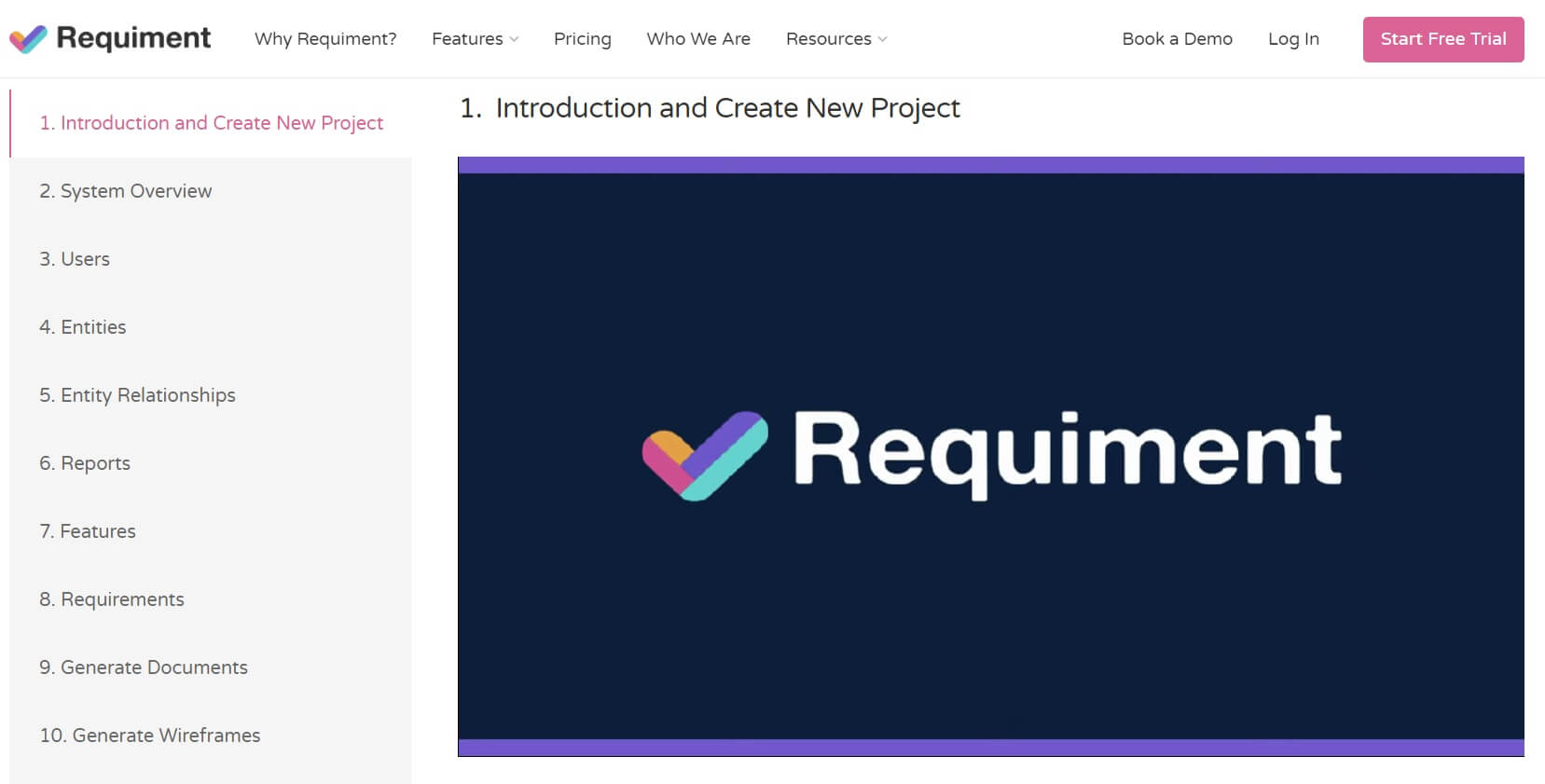
Additionally, Requiment has a feature that lets you upload tasks to Jira for easy team member management. We hope our commitment to excellent project management helps you address any shortfalls in implementing efficient management strategies without technical skills.

Outsourcing to a Remote Development Team at Pulsion
Does software development team management feel challenging? If so, contact us at Pulsion today to effectively manage your software development life cycle or to hire dedicated developers with a project manager. Our diverse team follows effective management strategies from our leadership members.
Summing Up Managing Software Development Teams Effectively
Software development team management is far simpler with our tips, but managing one efficiently isn’t always linear. Hence, we recommend speaking to our team about managing your site team or a remote software development team. Contact us today to ensure success and a happy work culture.
How to Manage a Software Development Team FAQs
How Do You Structure a Software Development Team?
Follow these steps to structure a team:
- Understand the business requirements
- Create the project scope
- Begin the hiring or interview process
- Assign roles and responsibilities
- Onboard the relevant team members
What Does a Good Development Team Look Like?
A good development team understands the project’s goals, collaborates on a single platform, and has clear roles and the relevant responsibility. The project manager uses project management tools or software to help the team collaborate and communicate as a single software team.
How Do You Handle Non-Productivity in a Team Member?
Follow these steps to identify and handle a non-productive developer:
- Discover the root cause (lost interest or lacking skills)
- Give feedback and ongoing support as a manager
- Outline clear and realistic expectations for the developer
- Encourage collaboration and accountability with tools
- Welcome the developer to partake with ideas for the coming step
- Address the consequences and take corrective action








